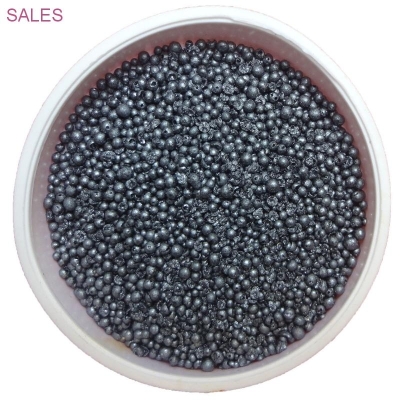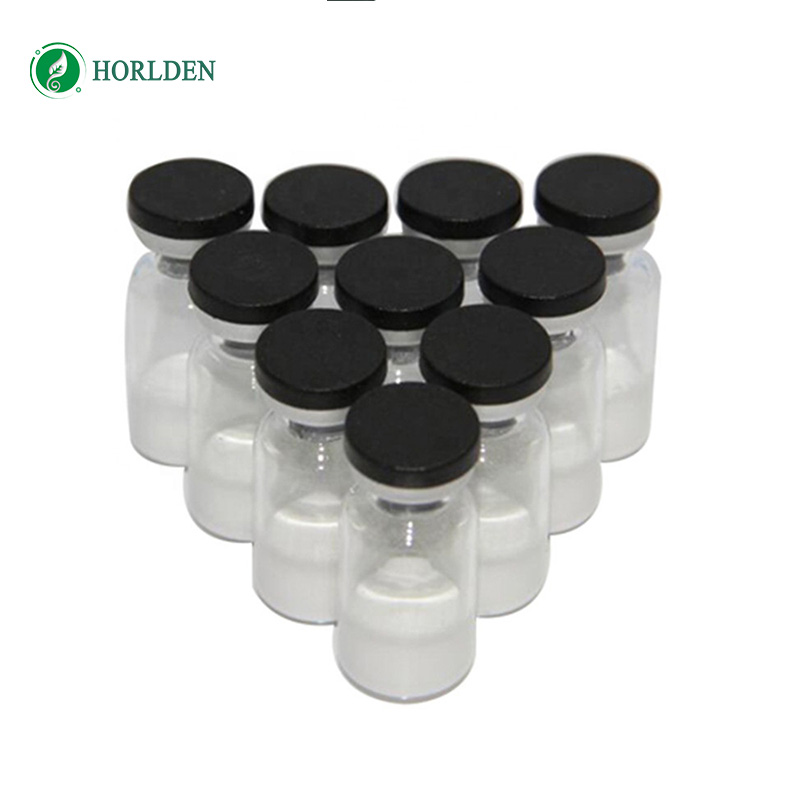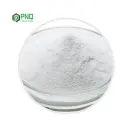-
Categories
-
Pharmaceutical Intermediates
-
Active Pharmaceutical Ingredients
-
Food Additives
- Industrial Coatings
- Agrochemicals
- Dyes and Pigments
- Surfactant
- Flavors and Fragrances
- Chemical Reagents
- Catalyst and Auxiliary
- Natural Products
- Inorganic Chemistry
-
Organic Chemistry
-
Biochemical Engineering
- Analytical Chemistry
- Cosmetic Ingredient
-
Pharmaceutical Intermediates
Promotion
ECHEMI Mall
Wholesale
Weekly Price
Exhibition
News
-
Trade Service
The incidence of thyroid tumors has risen dramatically around the world, and the identification and characterization of risk factors for thyroid cancer and nodules has become a hotspot of science in recent years
.
Thyroid tumors are divided into benign thyroid adenomas and malignant thyroid cancers (TCs).
65%
It has been suggested that multiple factors, including genetics, radiation, iodine, autoimmune diseases, and complex and diverse environmental factors, such as environmental chemicals, may be risk factors for thyroid tumors
.
The rapid increase in the incidence of TC is believed to be the result of high-resolution ultrasound diagnostic methods and overdiagnosis
Immunodiagnosis _
Therefore, there is an urgent need to explore the effects of perchlorate and iodine on thyroid tumors and thyroid function in three different pathological types
.
The aim of this study was to investigate the effect of perchlorate and iodine on the risk of nodular goiter (NG), papillary thyroid microcarcinoma (PTMC) and PTC and to explore their association with thyroid function markers to identify thyroid disease key risk factors
The study recruited 184 thyroid tumor and NG patients and 211 controls from a total of 395 participants, of which 184 controls were matched by sex and age (±2 years)
.
The demographic characteristics are shown in Table 1
(P
The distribution of perchlorate and iodine concentrations in urine is shown in Table 2
.
The perchlorate concentration in the total cases was higher than that in the total control group (P<0.
(P statistic
In addition, potential confounding variables for thyroid tumor and nodular goiter were also assessed, and BMI, smoking, and alcohol consumption were included as confounding variables in multiple conditional logistic regression analysis (Table 3)
.
The results showed that after adjusting for covariates, perchlorate was positively associated with total case risk (OR = 1.
041, 95% CI: 1.
017, 1.
(P (P
There was a nonlinear dose-response relationship between perchlorate and PTC (P- nonlinearity < 0.
05) (Fig.
1D)
.
The risk of PTC did not appear until the perchlorate concentration reached 11.
(P- at 11.
The correlation between thyroid function indexes and perchlorate and iodine levels in the control group was further analyzed
.
After adjustment for sex, age, BMI, smoking, and alcohol consumption, perchlorate was negatively associated with FT3 and positively correlated with TgAb, with β values of −0.
067 (95% CI: −0.
12, −0.
013) and 0.
15 ( 95%CI: 0.
0053, 0.
30) (Table 4 )
.
Iodine had no significant effect on thyroid function indicators ( P > 0.
05) (Table 4 )
.
Next, the effect of perchlorate on markers of thyroid function was further assessed at three iodine levels: insufficient, adequate, over-adequate, or excess (Table 5 )
.
The results showed that when the iodine content was sufficient, perchlorate was positively correlated with TSH, with a β value of 0.
19 (95%CI: 0.
040, 0.
33)
.
When iodine levels exceeded adequate or excess, perchlorate was negatively correlated with FT3 and positively correlated with TgAb, with β values of −0.
12 (95%CI: −0.
23, −0.
0049) and 0.
37 (95%CI: 0.
023, respectively) 0.
71)
.
.
After adjustment for sex, age, BMI, smoking, and alcohol consumption, perchlorate was negatively associated with FT3 and positively correlated with TgAb, with β values of −0.
067 (95% CI: −0.
12, −0.
013) and 0.
15 ( 95%CI: 0.
0053, 0.
30) (Table 4 )
.
Iodine had no significant effect on thyroid function indexes ( P >0.
05) (Table 4 P )
.
Next, the effect of perchlorate on markers of thyroid function was further assessed at three iodine levels: insufficient, adequate, over-adequate, or excess (Table 5 )
.
The results showed that when the iodine content was sufficient, perchlorate was positively correlated with TSH, with a β value of 0.
19 (95% CI: 0.
040, 0.
33)
.
When iodine levels exceeded adequate or excess, perchlorate was negatively correlated with FT3 and positively correlated with TgAb, with β values of −0.
12 (95%CI: −0.
23, −0.
0049) and 0.
37 (95%CI: 0.
023, respectively) 0.
71)
.
The present study showed that perchlorate was positively associated with PTC risk, and that perchlorate can disrupt thyroid function homeostasis, but did not find an association between perchlorate, NG, and PTMC
.
In addition, no link was found between iodine and the risk of thyroid tumors and nodular goiter, or thyroid function
.
In recent years, the association of endocrine-disrupting compounds and iodide inhibitors with thyroid disease has received worldwide attention
.
However, few population-based studies have examined the association between iodinated inhibitors and thyroid disease
.
This study is the first population-based study to simultaneously examine the association of perchlorate exposure with three thyroid tumor types (NG, PTMC and PTC)
.
This study provides important population-based evidence for the identification of risk factors for thyroid tumors and NG from exogenous environmental chemical exposures
.
.
In addition, no link was found between iodine and the risk of thyroid tumors and nodular goiter, or thyroid function
.
In recent years, the association of endocrine-disrupting compounds and iodide inhibitors with thyroid disease has received worldwide attention
.
However, few population-based studies have examined the association between iodinated inhibitors and thyroid disease
.
This study is the first population-based study to simultaneously examine the association of perchlorate exposure with three thyroid tumor types (NG, PTMC and PTC)
.
This study provides important population-based evidence for the identification of risk factors for thyroid tumors and NG from exogenous environmental chemical exposures
.
Perchlorate was positively associated with PTC risk, and perchlorate can disrupt thyroid function homeostasis, but no link was found between perchlorate, NG, and PTMC
.
No link was found between iodine and the risk of thyroid tumors and nodular goiter, or thyroid function
.
Original source:
Wang et al.
The risk of perchlorate and iodine on the incidence of thyroid tumors and nodular goiter: a case-control study in southeastern China.
Environmental Health (2022) 21:4
https://doi.
org/10.
1186/s12940-021 -00818-8
Environmental Health (2022) 21:4
https://doi.
org/10.
1186/s12940-021-00818-8 leave a message here







